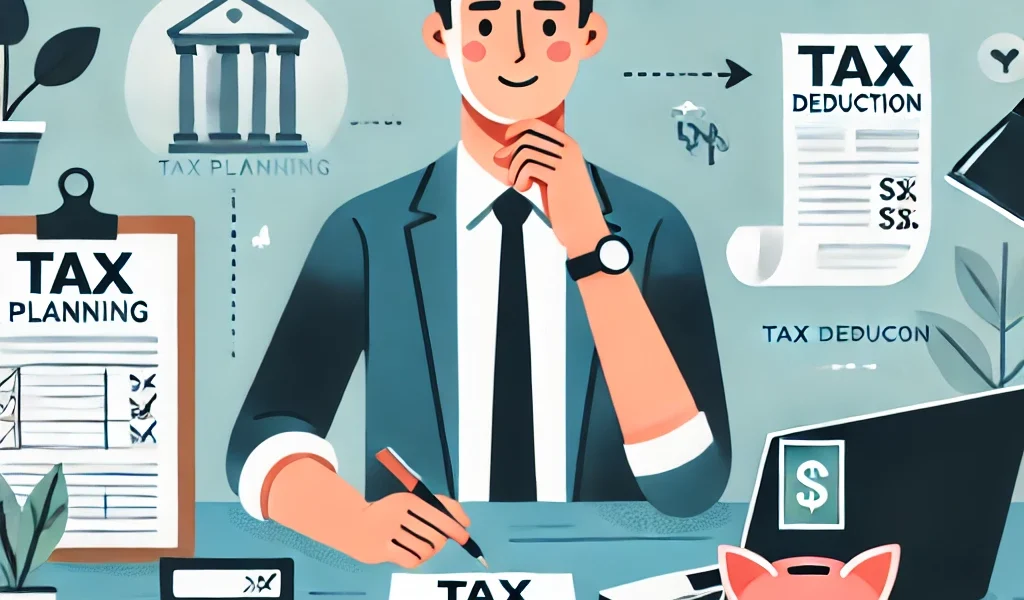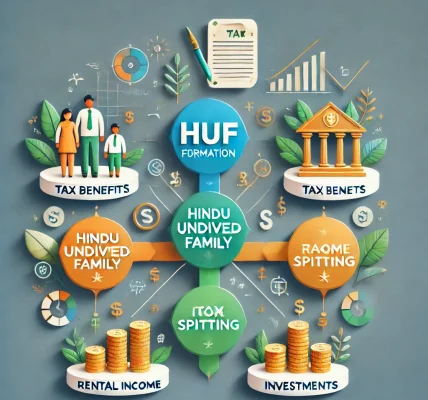Introduction
Tax planning is an essential financial skill that every young professional should master. By understanding and implementing effective tax-saving strategies early in their careers, individuals can significantly reduce their tax burden and increase their long-term savings. Many people overlook tax planning until it’s too late, missing out on valuable deductions, credits, and investment opportunities that could have saved them thousands of dollars.
This DIY guide is designed to provide young professionals with practical tax-saving strategies, ensuring compliance with tax laws while optimizing financial growth.
Why Start Tax Planning Early?
1. Maximizing Tax Benefits
The earlier you start tax planning, the more opportunities you have to take advantage of tax-saving options such as retirement accounts, deductions, and tax credits.
2. Building Wealth Over Time
Strategic tax planning allows you to invest saved tax money into wealth-building assets such as stocks, bonds, and real estate, setting you up for long-term financial success.
3. Avoiding Last-Minute Stress
By planning ahead, you can ensure that you have all necessary documents and tax-saving investments in place, avoiding the stress of last-minute filing errors or missed deductions.
Understanding Your Tax Obligations
1. Know Your Tax Bracket
Understanding your tax bracket is essential in determining how much tax you owe and identifying ways to minimize it. Tax rates vary based on income levels and filing status (single, married, or head of household).
2. Types of Taxes You Might Pay
- Income Tax: Based on your salary, bonuses, and other earnings.
- Capital Gains Tax: Taxes on profits from selling investments like stocks or property.
- Self-Employment Tax: If you have a side business or freelance, you may be subject to additional taxes.
- Payroll Taxes: These include Social Security and Medicare contributions.
Key Tax Planning Strategies for Young Professionals
1. Maximize Retirement Contributions
- Contribute to employer-sponsored retirement plans like a 401(k) or pension scheme to lower taxable income.
- If self-employed, consider contributing to an IRA (Individual Retirement Account) or a Solo 401(k).
- Many employers offer contribution matching, which is essentially free money towards your retirement.
2. Take Advantage of Tax Deductions
Tax deductions reduce your taxable income. Common deductions include:
- Student Loan Interest: Deduct up to a specified amount on interest paid for student loans.
- Work-Related Expenses: If applicable, deductions for home office expenses, professional development, and certifications.
- Health Savings Account (HSA) Contributions: If you have a high-deductible health plan, contributions to an HSA are tax-deductible and grow tax-free.
3. Utilize Tax Credits
Tax credits directly reduce the tax you owe. Key tax credits include:
- Earned Income Tax Credit (EITC): Designed for low to moderate-income earners.
- Education Tax Credits: Such as the Lifetime Learning Credit and American Opportunity Credit for further studies.
- Energy-Efficient Home Improvements: Some countries offer credits for eco-friendly home upgrades.
4. Consider Tax-Advantaged Investments
- Invest in Municipal Bonds: These are generally tax-exempt at the federal level.
- Contribute to Roth IRA Accounts: While contributions are made after-tax, withdrawals during retirement are tax-free.
- Consider Index Funds & ETFs: These offer tax efficiency compared to actively managed funds.
5. Manage Your Side Income Smartly
Many young professionals have side gigs or freelance income. To minimize taxes:
- Track all income and expenses diligently.
- Set aside estimated taxes throughout the year to avoid a large bill during tax season.
- Consider forming an LLC or using deductions for business-related expenses.
Smart Tax Filing Tips
1. Keep Accurate Records
Maintain organized records of your income, deductions, and receipts. Use digital tools or apps to track expenses and store receipts safely.
2. File Your Taxes on Time
Filing taxes late can lead to penalties and interest charges. Mark important tax deadlines on your calendar and consider setting reminders.
3. Use Tax Software or a Professional Accountant
If your tax situation is simple, tax filing software can help you file accurately. For more complex situations, hiring a tax professional can maximize deductions and ensure compliance.
4. Review Your W-4 Withholding Form
If you receive a paycheck, ensure that your W-4 form is correctly filled out to withhold the right amount of taxes from your salary.
Common Tax Mistakes to Avoid
- Not Taking Advantage of Employer Benefits: Many young professionals miss out on tax-saving benefits such as 401(k) matching and commuter benefits.
- Ignoring Student Loan Interest Deductions: This deduction can provide significant savings.
- Failing to Report Side Income: All income, including freelance work, must be reported.
- Not Keeping Tax Documents for Future Reference: Keep copies of tax returns for at least three to five years in case of audits or amendments.
Conclusion
Starting tax planning early as a young professional can lead to significant financial benefits over time. By understanding tax laws, maximizing deductions and credits, and making smart investment decisions, you can reduce your tax burden and grow your wealth effectively.
Whether you’re a salaried employee or a freelancer, implementing these strategies can help you save more money and secure a strong financial future. Always consult a tax professional for personalized advice and stay informed about changes in tax regulations.



